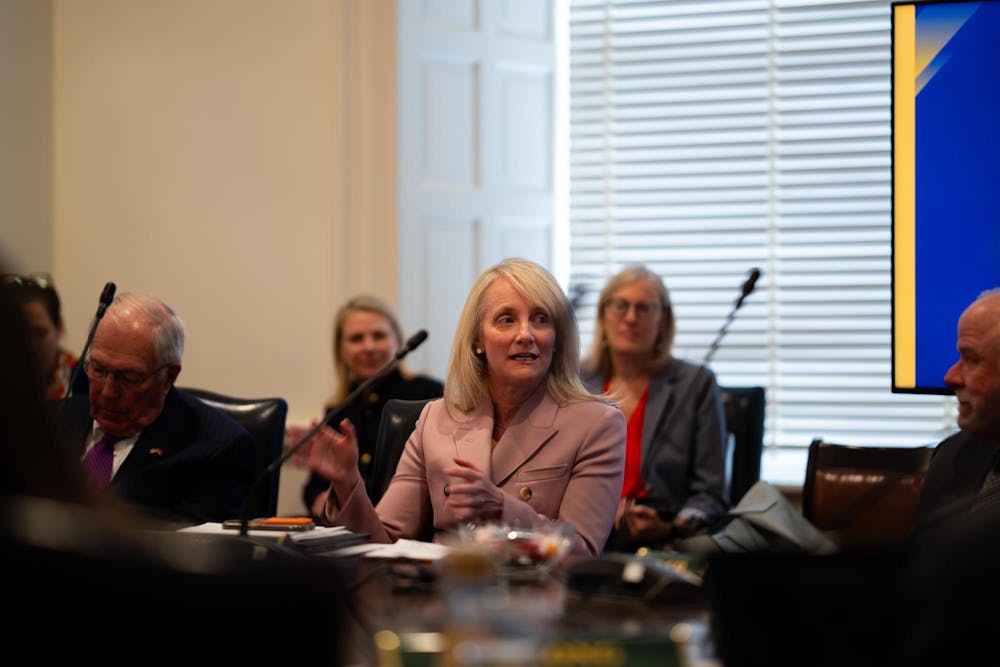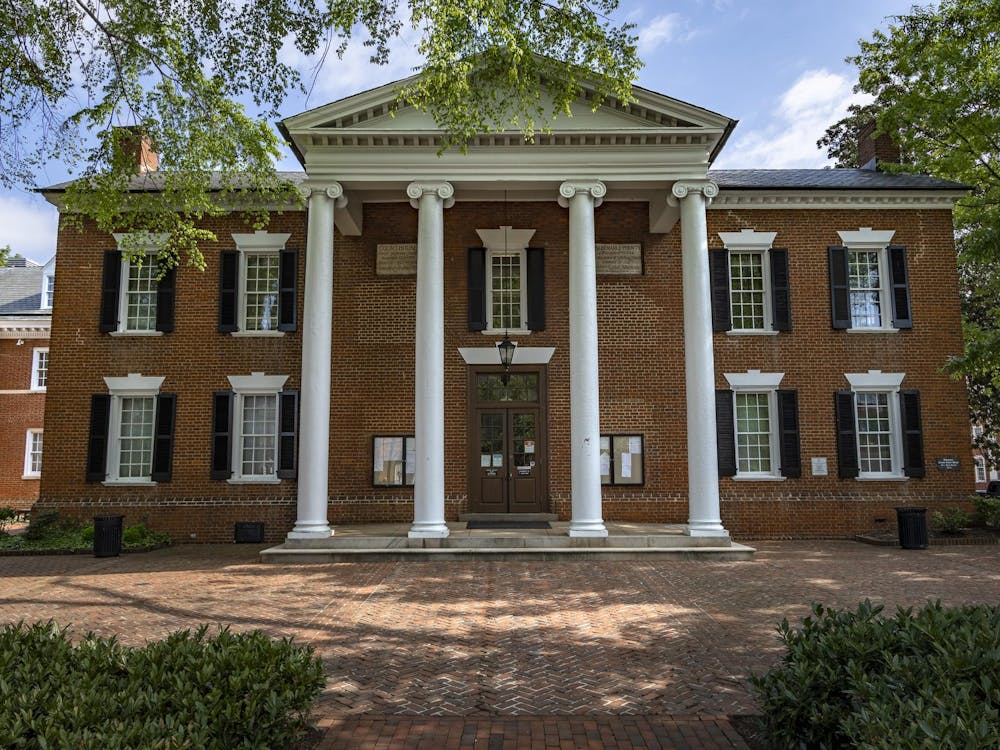The University’s presidential search committee — composed of 28 members with connections to the University — met Friday to discuss the search process and to hear from committee members. Board of Visitors Rector Rachel Sheridan also introduced external search firm Isaacson, Miller, which will assist the committee in their search for the University’s next permanent president.
Representatives from the firm, which assisted with the 2017 presidential search, provided advice to search committee members and answered questions regarding how the University will recruit and select candidates.
At the meeting, Sheridan outlined the search process, which will include seeking nominations and evaluating candidates through several stages of interviews. She also announced that the committee should aim to present a group of around three final candidates to the full Board. Sheridan did not specify a timeline for the process.
John Isaacson, chair of Isaacson, Miller, introduced his firm and advised that members keep discussions about specific candidates confidential in order to protect these candidates, who may already have high profile positions at other universities. In a statement shared with the University community after the meeting, the committee assured community members that they would work to engage all stakeholders in the search process, but noted that confidentiality would also remain important to allow for a successful search.
“Some have equated necessary confidentiality with secrecy or exclusion, but that misunderstands how presidential searches work,” the statement stated. “Maintaining appropriate confidentiality allows us to attract and evaluate the best possible candidates — leaders who might otherwise never enter the process.”
In his initial statement, Isaacson also encouraged committee members to equally share the responsibility of making selection decisions.
“Make sure that everybody in the group has [a] voice, says their piece, says it candidly and is heard by everybody else,” Isaacson said. “Please try hard not to veto a candidate with one voice, because you may discover people on the committee have very different views, and all of those views need to be taken into account.”
Part of this meeting opened a discussion for committee members to discuss the qualities they hoped to see in a successful candidate and to ask Isaacson questions about the process. Babur Lateef, former Board member and current graduate student, expressed concern that following former University President Jim Ryan’s resignation and pressure from the federal government, qualified candidates would not be interested in leading the University.
“I worry, in this time of … transformational change in higher education, [about] our ability to attract strong candidates. Who wants to be a [university] president these days?” Lateef said.
Isaacson noted in response that despite recent challenges, the University’s next president will still have opportunities to lead a strong institution with many positive aspects, including widespread public support in Virginia, high application and retention rates and financial stability. In a later statement, Isaacson encouraged members to look for candidates who can balance this political pressure.
“Your prior president was forced out of office, so [the next president] needs to be good at maintaining a university that can thread all of the political needles, and there are [university] presidents in this country who are successfully doing that,” Isaacson said.
Board member Doug Wetmore also said in discussion that he was looking for a president who would take steps to depoliticize the University — although he called current times a “politically intense atmosphere,” he did not speak to what action these steps would involve. The statement released by the committee following the meeting noted that the search would not revolve around political ideology or personal agendas.
Other committee members emphasized the University’s need for a leader who would support the Health System. Although none mentioned specific ongoing challenges, this follows the departure of three high-profile Health System leaders earlier this year — Chief Executive Officer Craig Kent, Melina Kibbe, dean of the School of Medicine and Wendy Horton, chief executive officer of the University Medical Center. Lateef and Sheridan both noted that more than 50 percent of the University’s revenue comes from the Health System.
“On top of overseeing the day to day life of students, academics and research, [the president] also oversees the entire multi-billion dollar medical system,” Sheridan said. “It is of critical importance, and there's a number of people on the Board that are very familiar with that business, but the president will have to oversee that as well.”
As the conversation shifted to the topic of higher education more broadly, Philip Bourne, dean of the School of Data Science, noted that higher education will change rapidly over the next few years and that the University needs a president who can embrace and lead that change. Other members echoed Bourne’s statement, noting fiscal, technological and political shifts which are currently affecting the University.
The meeting, held at Boar’s Head Resort, was not streamed live. Part of the meeting was held in closed session to discuss specific candidates.
After closed session, Sheridan announced that more information would be shared soon regarding the committee’s next meeting and its plans to involve the broader University community in the search. Although the University has said that a website will be launched to provide updates and solicit input from the community and that listening sessions with community members would be held during the search for a permanent president, neither have yet been officially announced.







